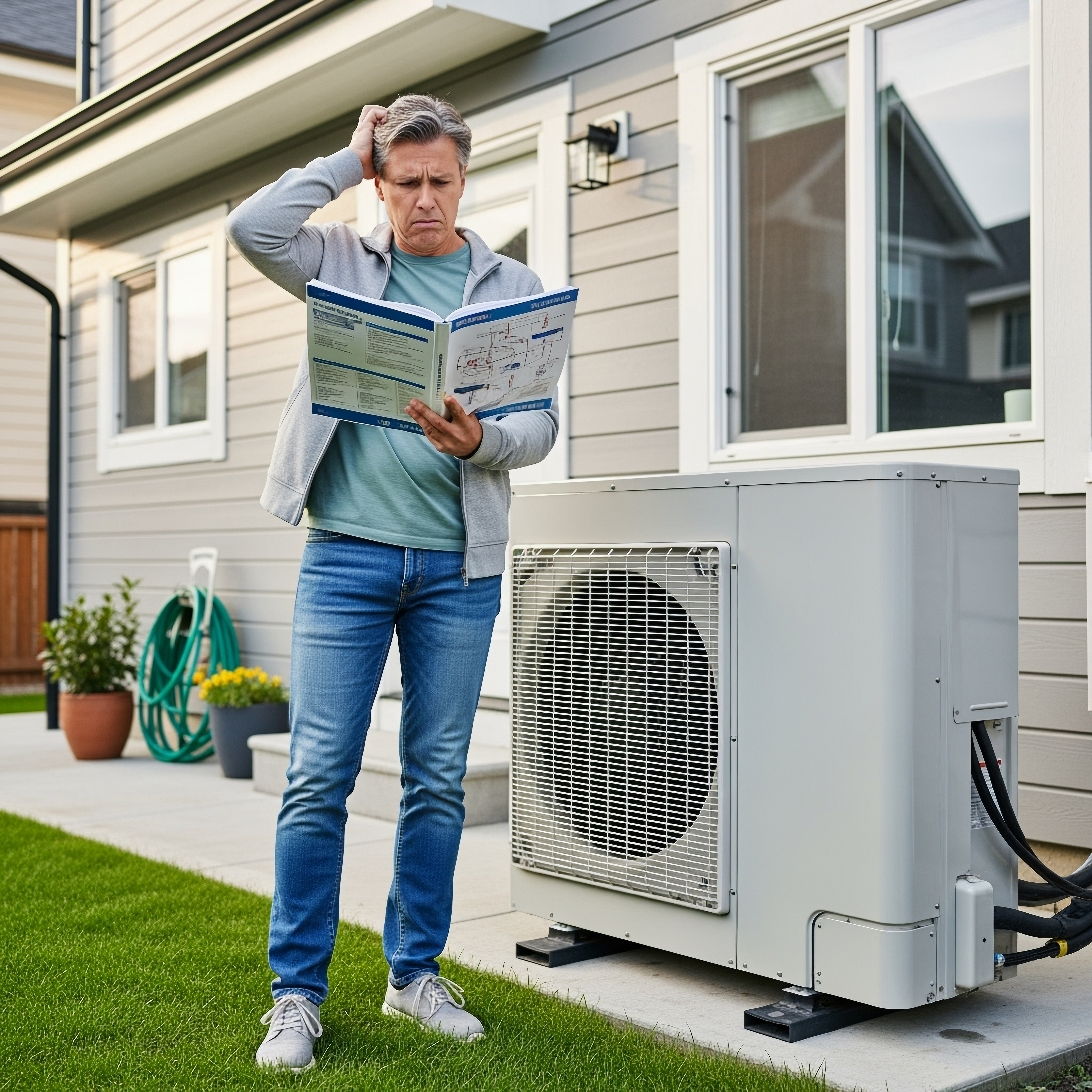
When you live in Central Florida, you know the importance of reliable air conditioning. But what if your system could not only keep you cool in the sweltering Orlando summer, but also keep you cozy on those rare chilly January mornings? That’s exactly what a heat pump does. Despite the name, a heat pump doesn’t just heat — it both heats and cools your home. Thanks to advances in technology, today’s heat pumps are more efficient, more effective, and more affordable than ever before.
But do you really know what a heat pump is, where the idea came from, and why so many Florida homeowners are switching to them now?
A Short History: From Theory to Today’s High-Tech Comfort
The heat pump isn’t a brand-new idea. In fact, the concept dates back almost 175 years. In the mid-1800s, Scottish scientist William Thomson, better known as Lord Kelvin, described how heat could be moved from one place to another — basically “pumping” warmth instead of burning fuel to create it. Not long after, Austrian engineer Peter von Rittinger built the first working heat pump, using it to make salt by pulling heat out of the air to evaporate water.
Early heat pumps were clunky and mainly experimental, but by the 20th century, the same ideas used in refrigerators and air conditioners — a refrigerant circulating through coils and compressors — were being refined into equipment that could both cool and heat homes.
The principle is simple. A heat pump works on what’s called the vapor-compression cycle. Don’t let the name scare you. It just means that a special liquid, called refrigerant, is circulated through a loop where it constantly changes from liquid to gas and back again. When it evaporates into a gas, it soaks up heat from its surroundings. When it’s compressed, it gets hotter. When it condenses back into a liquid, it releases that heat into your home. Flip a switch, and the process can run in reverse, moving heat out of your house to keep you cool.
There’s even a type of heat pump called ground-source or geothermal. Instead of pulling heat from the air, it exchanges heat with the earth a few feet underground, where the temperature stays fairly steady all year. It’s like tapping into the earth’s natural “climate control system.” These systems are less common in Orlando because they require digging or drilling, but they demonstrate just how versatile heat pump technology has become.
Fast-forward to today, and the modern heat pump is a far cry from its 19th-century ancestors. With smart controls, variable-speed compressors, quieter operation, and environmentally friendlier refrigerants, heat pumps have become one of the fastest-growing choices for homeowners who want efficient, year-round comfort.
Why Heat Pumps Are a Big Win for Florida Homes
One of the best things about heat pumps is efficiency. Instead of burning fuel to make heat, they simply move heat from one place to another. That simple difference makes them incredibly energy-wise. For every unit of electricity used, a heat pump can move two to four units of heat. In plain language, that’s like getting 200% to 400% efficiency, compared to a standard electric furnace that maxes out at 100%.
What does that mean for your wallet? Studies show that switching to a heat pump can reduce heating costs by 50–70% compared to electric resistance heating. Nationwide, households that switch from oil, propane, or electric baseboard heating save an average of $300 to $1,000 per year on energy bills. Here in Florida, where heating needs are mild but cooling loads are high, a properly sized heat pump can cut year-round energy use significantly — especially with today’s variable-speed models that run more smoothly and maintain even temperatures without constant cycling on and off.
Heat pumps also help the environment. Because they run on electricity and don’t rely on burning fossil fuels in your home, they reduce carbon emissions. As Florida’s power grid adds more renewable energy sources like solar, the environmental benefit grows even greater.
And what about cold weather? For years, critics claimed that heat pumps don’t work well when temperatures drop. That used to be true of older models. But new research and field data show that modern “cold-climate” heat pumps work efficiently even when it’s well below freezing. Some systems are designed to deliver reliable heat at outdoor temperatures of -15°F — far colder than Central Florida will ever see. So for Orlando homeowners, performance in “cold” weather really isn’t an issue.
The Other Side of the Story
At ServiceOne, we believe in being honest about both the pros and cons. While heat pumps are fantastic for most homes, there are still considerations.
They usually cost more up front than a traditional air conditioner or furnace. If your ductwork is old or leaky, you may need updates to take full advantage of the efficiency. And like any mechanical system, they need regular maintenance to keep them running at their best.
But when you compare the higher initial price tag with the thousands saved over the lifespan of the unit — not to mention the rebates and tax credits available right now — most homeowners see a heat pump as a smart investment.
What to Expect When Installing a Heat Pump
If you’re thinking about upgrading, you may be wondering what the installation process looks like. It begins with a free consultation, where a ServiceOne professional visits your home, inspects your existing system, and performs calculations to make sure the new heat pump will be sized correctly for your space. We’ll look at your insulation, ductwork, and electrical system to see if any upgrades are needed.
Once we’ve designed the right system for your home, we’ll handle the permitting, remove your old unit, and install the new indoor and outdoor components. The refrigerant lines, electrical wiring, and controls are all connected, and the system is thoroughly tested in both heating and cooling modes. Finally, we walk you through how to use it, how to keep it maintained, and what to expect in terms of performance and energy savings.
For most homes, installation takes just a couple of days. If ductwork modifications or electrical panel upgrades are required, it may take a bit longer — but the result is a reliable, efficient system ready to keep you comfortable year-round.
Why Now Is the Best Time to Act
Here’s the best part: if you install a qualifying heat pump before December 31, 2025, you can receive a federal tax credit worth 30% of the total cost, up to $2,000. That’s not just a rebate or utility discount — it’s an actual credit on your federal taxes.
The same credit applies to hybrid heat pump water heaters!
But there’s urgency here. These incentives expire at the end of 2025. If you wait too long, you could miss out on thousands of dollars in savings.
Call ServiceOne Today for Your Free Quote
The clock is ticking on these federal credits, and every month you delay could mean higher energy bills and lost savings. ServiceOne is Orlando’s trusted HVAC and plumbing company, with decades of experience helping Central Florida homeowners stay comfortable.
We’ll walk you through every step of the process — from choosing the right system to filing your paperwork for incentives. With ServiceOne, you’ll get clear answers, professional installation, and a system designed to keep your family comfortable and your utility bills under control.
Don’t wait until 2026. Call ServiceOne today for your free heat pump consultation. Let us help you upgrade to a smarter, more efficient home — and make sure you claim your tax credit before it disappears.





